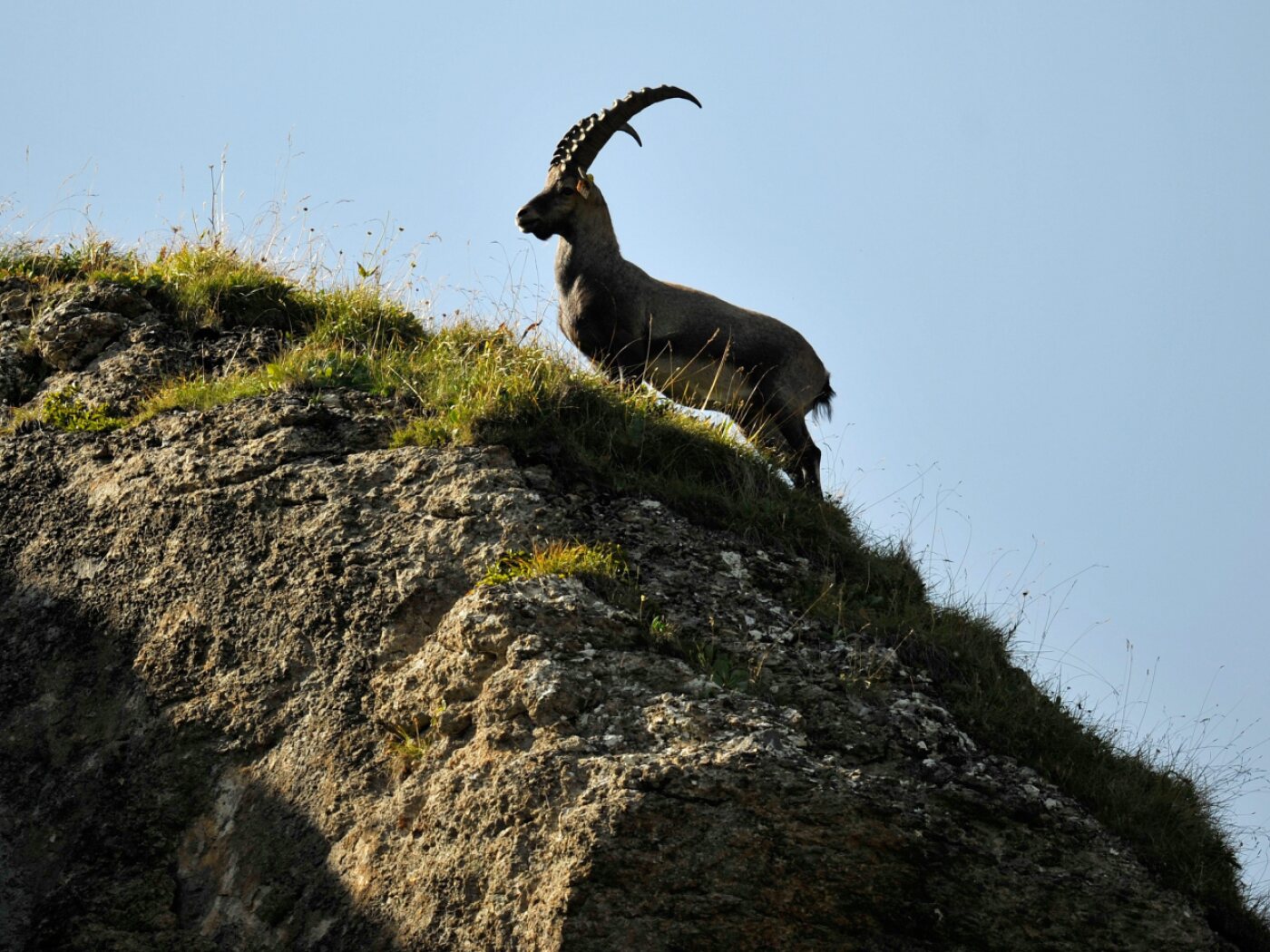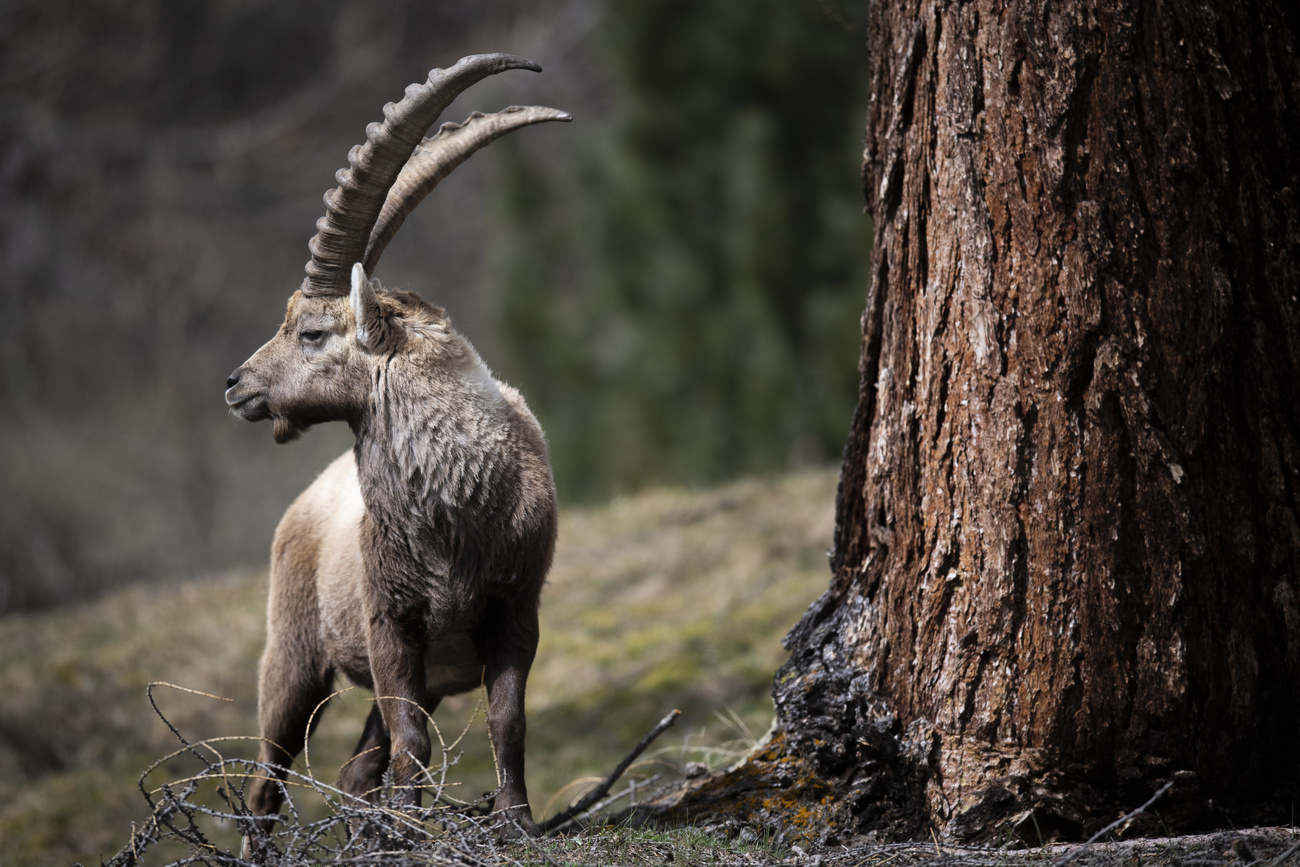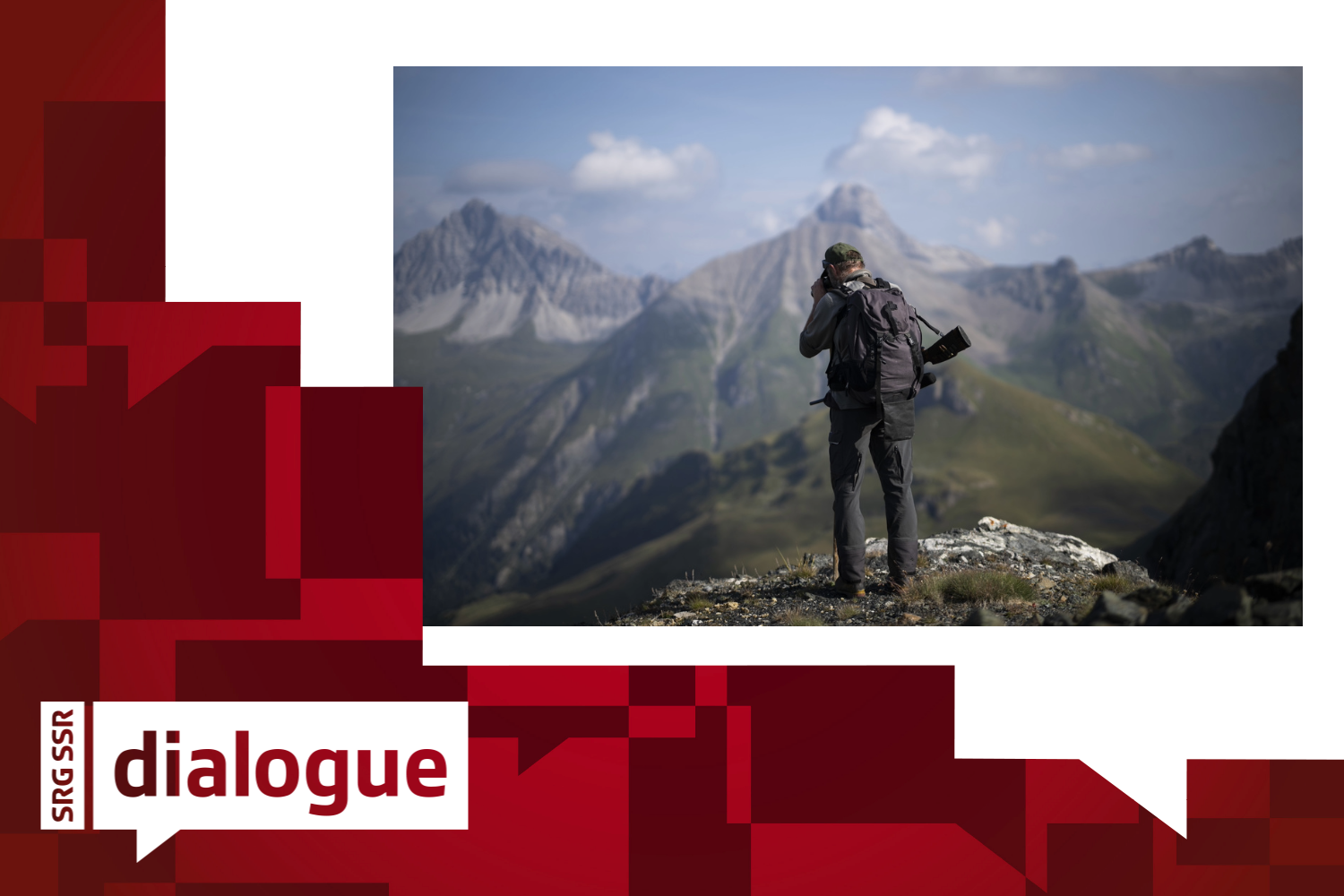
Foreign hunters allowed to target Swiss ibex again

The Swiss canton of Valais will relax its ban on foreigners hunting ibex, a type of long-horned mountain goat, from the start of next year.
+Get the most important news from Switzerland in your inbox
Hunters from outside the canton have been banned from targeting ibex in the canton in southwest Switzerland following a public outcry in 2021.
+ Foreigners banned from ibex trophy hunting
Ibex shooting has long attracted foreign hunters to the Valais. In 2021, however, the canton discontinued the practice following a report by Swiss public broadcaster RTS, which provoked an outcry from the public, dismayed by the conditions of this tourist hunt.
In particular, it emerged that foreign hunters would pay up to CHF12,000 to kill a male ibex, depending on the length of its horns.
Since then, there have been calls for the return of foreign hunters. Last year, for example, the Grand Council accepted a postulate calling for a review of the ban.

More
Ibex population hits record high in Switzerland
In a press release issued on Thursday, the State of Valais announced that shooting will once again be open to foreign hunters from outside the canton, starting next year. The authorities explain that they have made “adjustments in order to guarantee the best possible conditions in the organization of the shootings.”
New terms and conditions
Valais, foreign and out-of-canton customers will now be subject to the same directive. The Service de la chasse, de la pêche et de la faune (SCPF) will have no contact with hunting agencies or other external partners. Shooting will therefore be organised directly between hunters and the SCPF.
+ How many wolves are good for Switzerland?
Customers will be required to pay the full amount of the fee to the canton prior to regulation. They must also hold a hunting license recognised by the SCPF and be accompanied in the field by a wildlife warden, who will make the final decision as to which animal is killed.
For foreign hunters and hunters from outside the canton, only the 11+ category, i.e. males over 11 years of age, will be available, depending on the annual shooting schedule validated by the Federal Office for the Environment.
Culling ‘necessary’
It should also be noted that fees will be set according to age category, and no longer according to the length of the ibex’s horns. Valais hunters will benefit from lower fees than customers from outside the canton and abroad.
This year, Valais wildlife wardens counted a record 7,000 ibex. In its press release, the canton asserts that regulation is necessary to minimise “competition between ibex populations and those of other species, such as chamois”. It is also necessary to reduce the damage caused by ibex to forests and crops.

More
Hunting: where two visions of nature clash
Translated from French by DeepL/mga
This news story has been written and carefully fact-checked by an external editorial team. At SWI swissinfo.ch we select the most relevant news for an international audience and use automatic translation tools such as DeepL to translate it into English. Providing you with automatically translated news gives us the time to write more in-depth articles.
If you want to know more about how we work, have a look here, if you want to learn more about how we use technology, click here, and if you have feedback on this news story please write to english@swissinfo.ch.

In compliance with the JTI standards
More: SWI swissinfo.ch certified by the Journalism Trust Initiative






























You can find an overview of ongoing debates with our journalists here . Please join us!
If you want to start a conversation about a topic raised in this article or want to report factual errors, email us at english@swissinfo.ch.